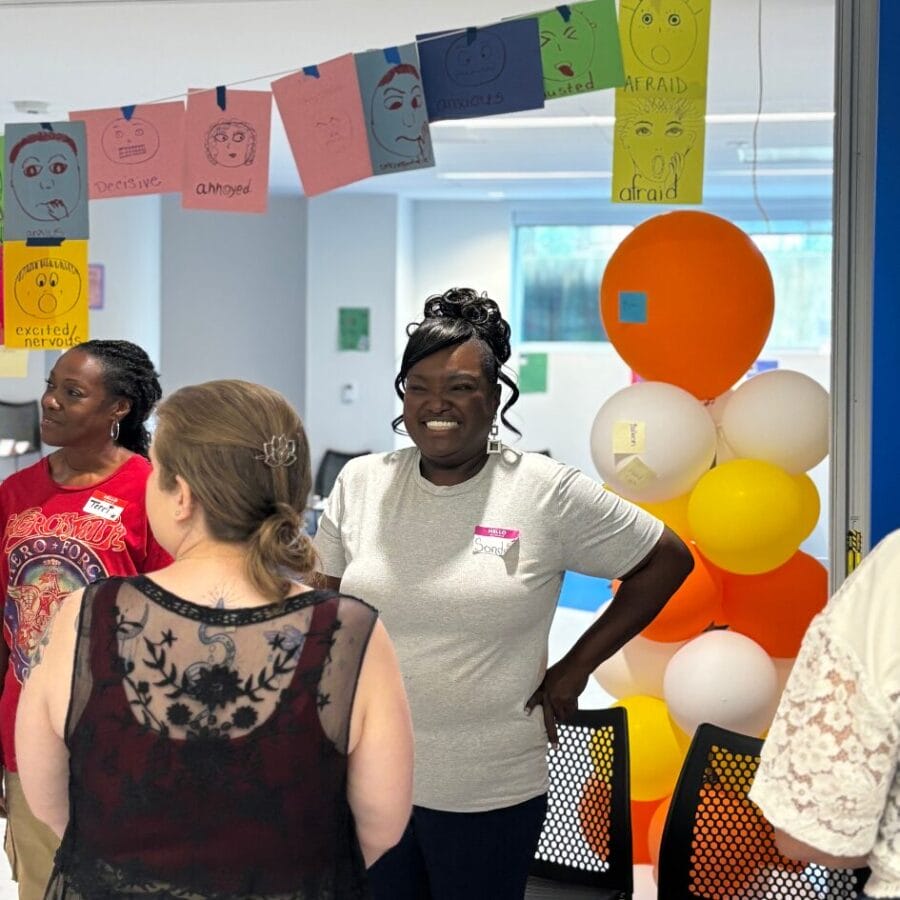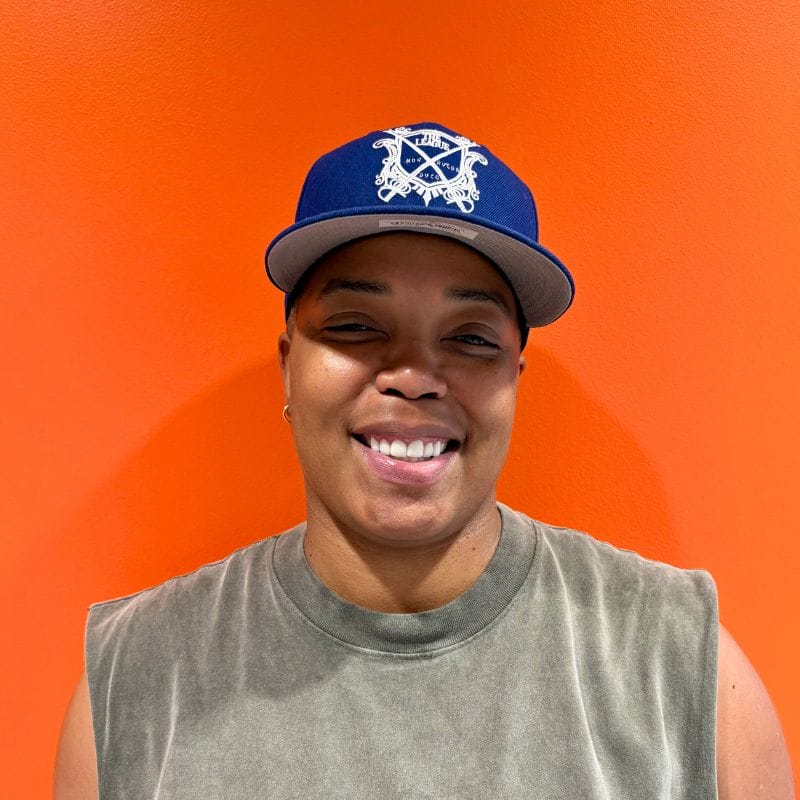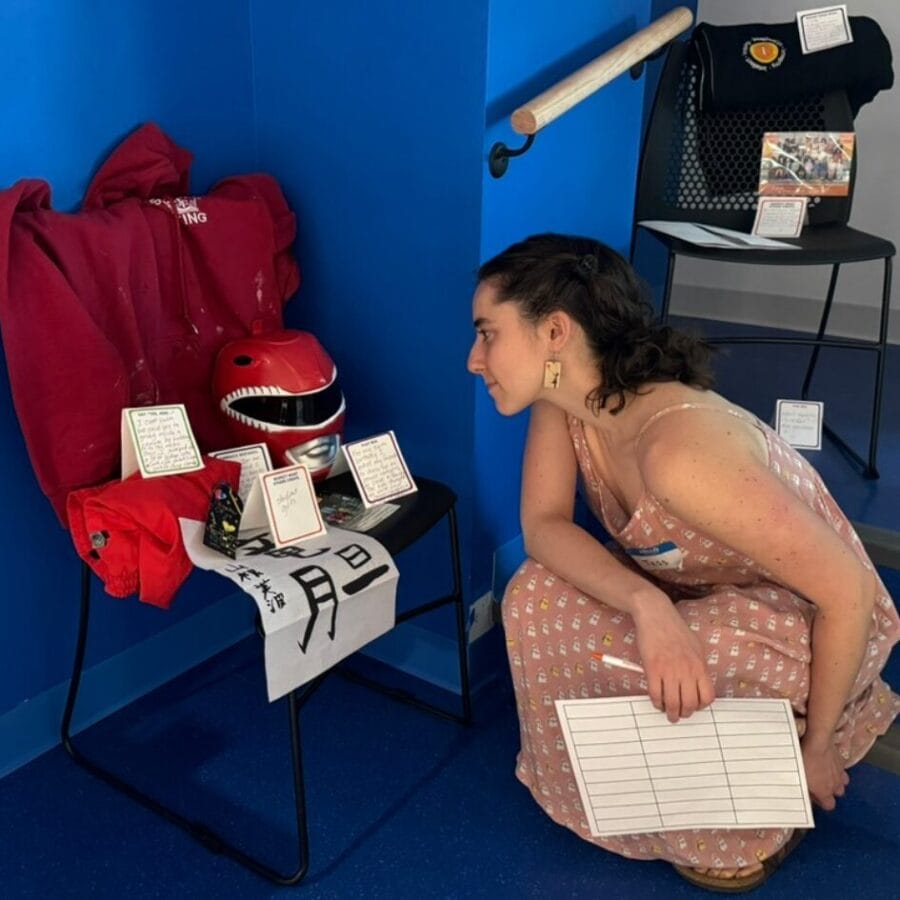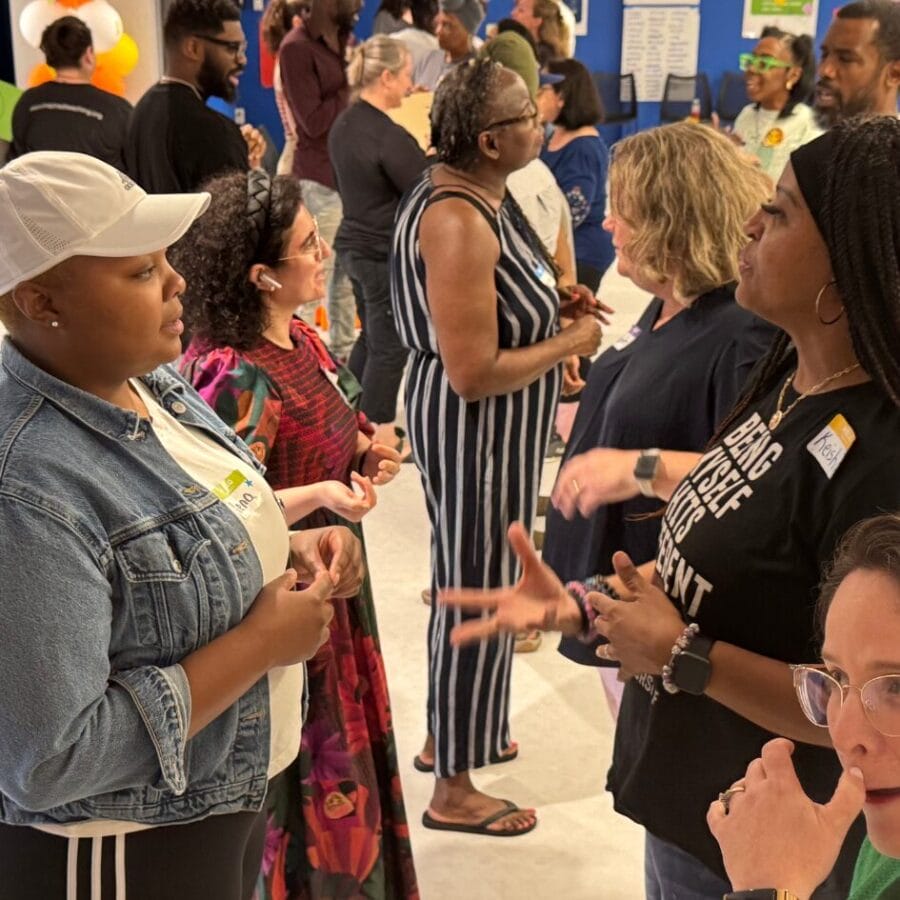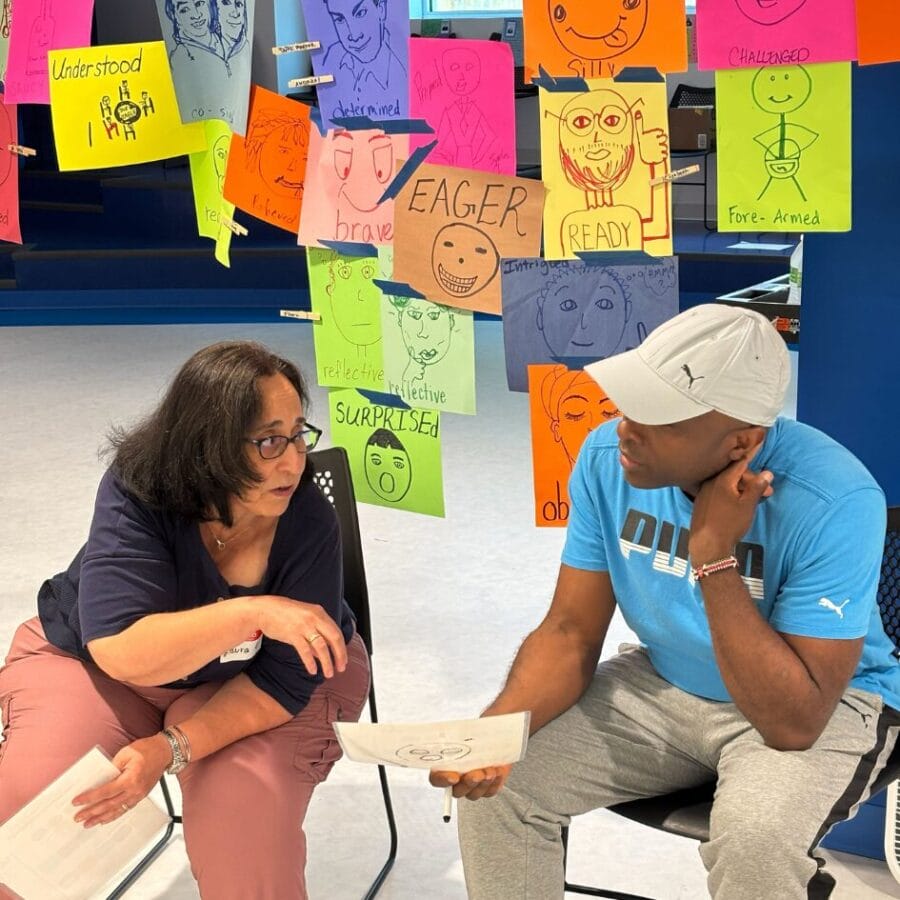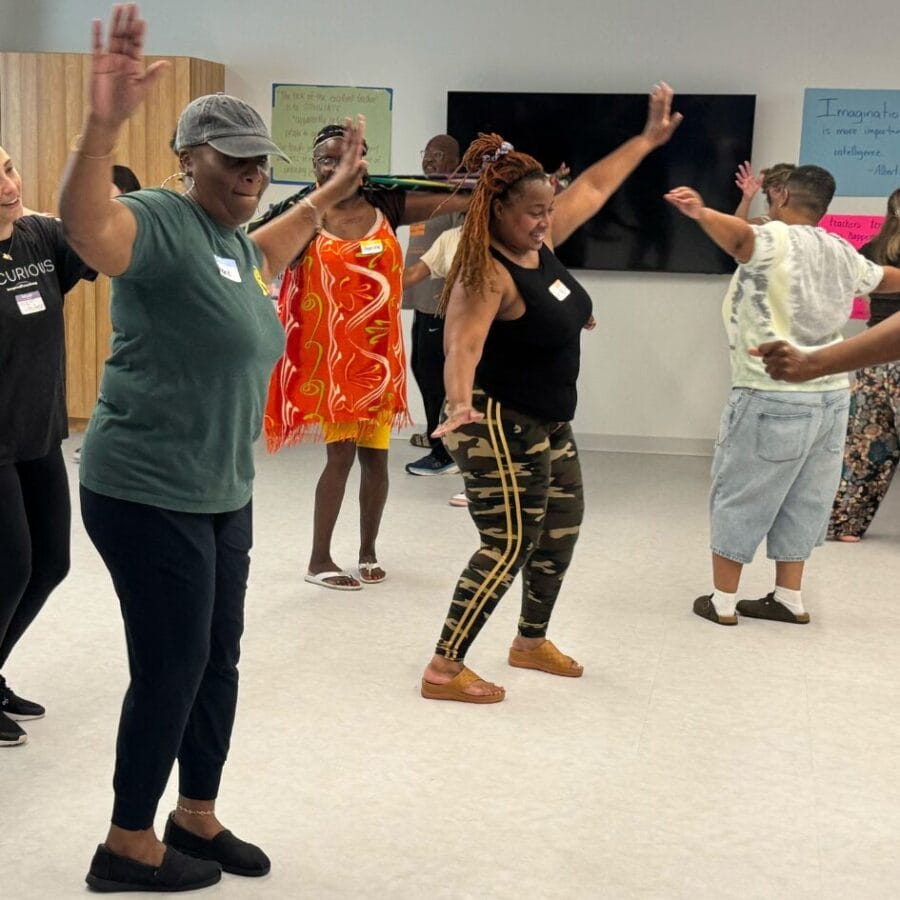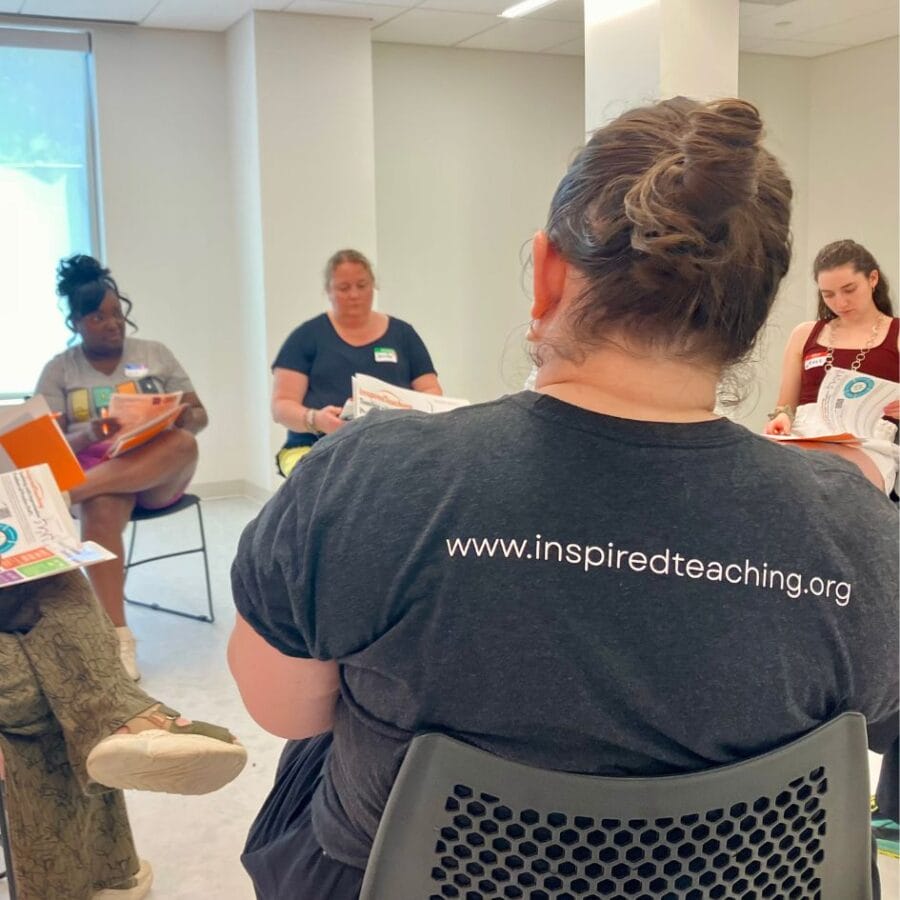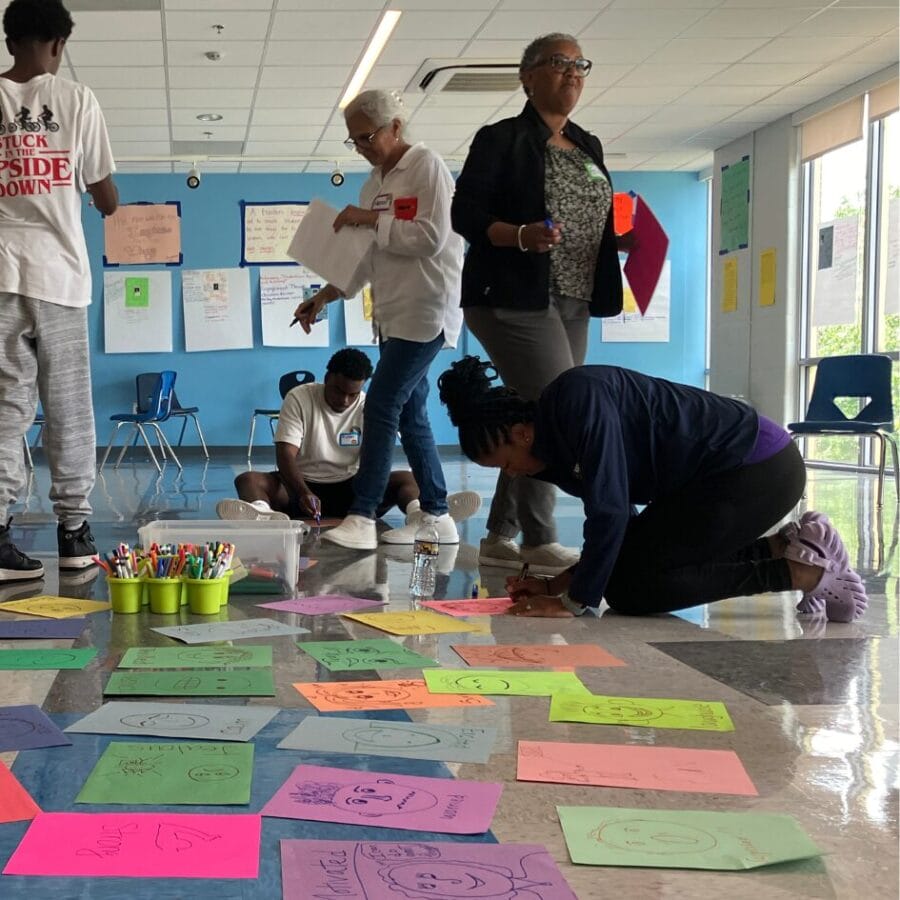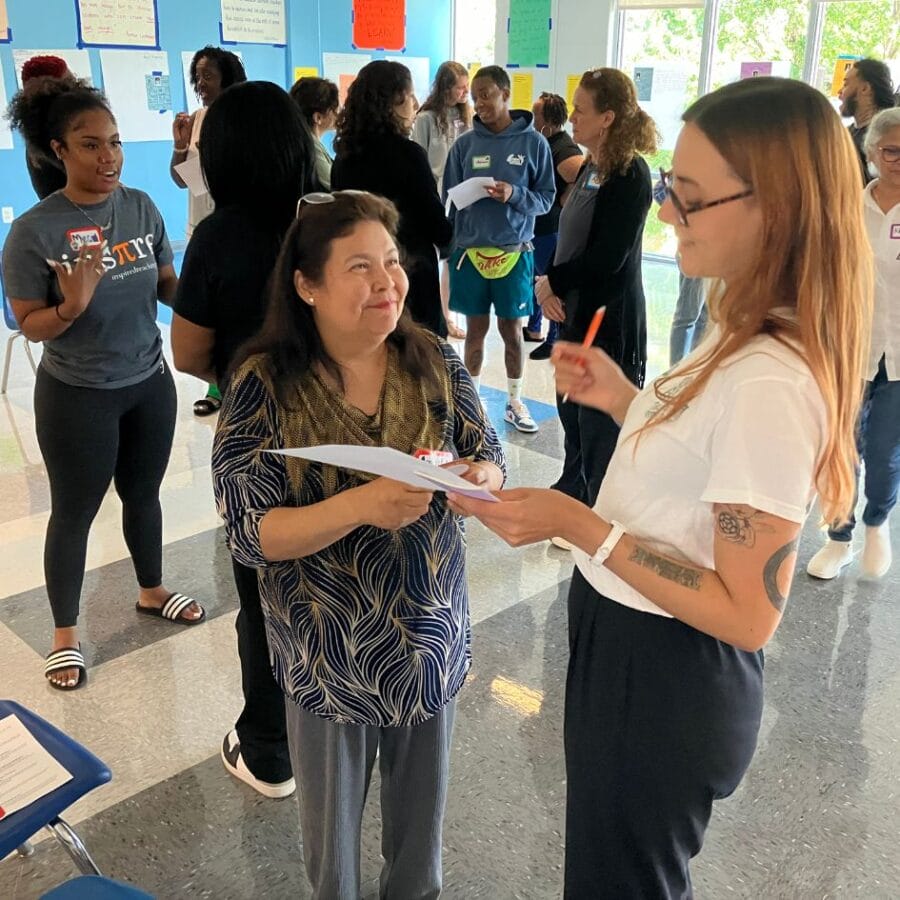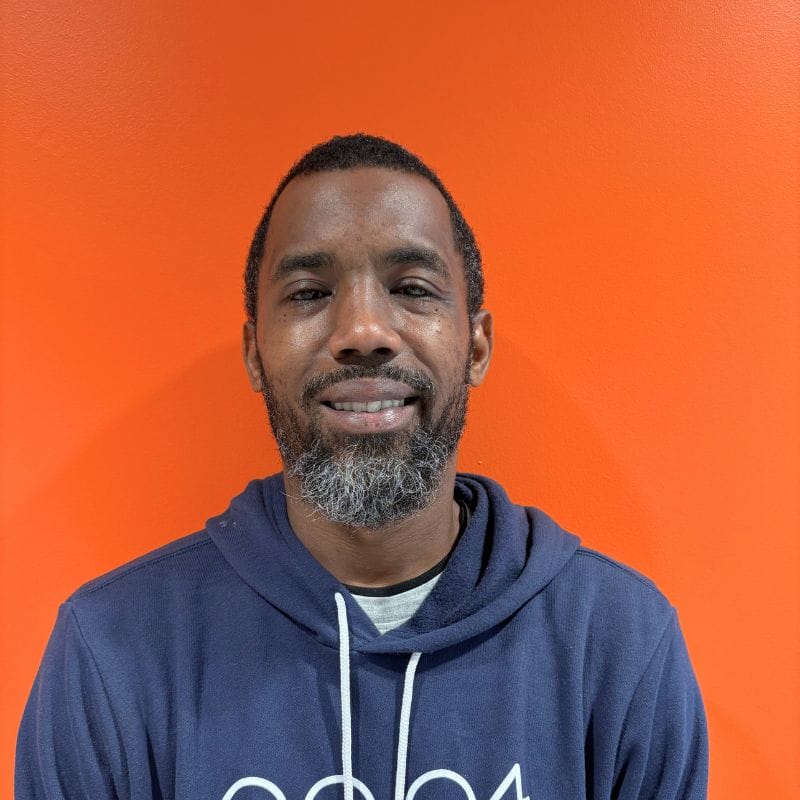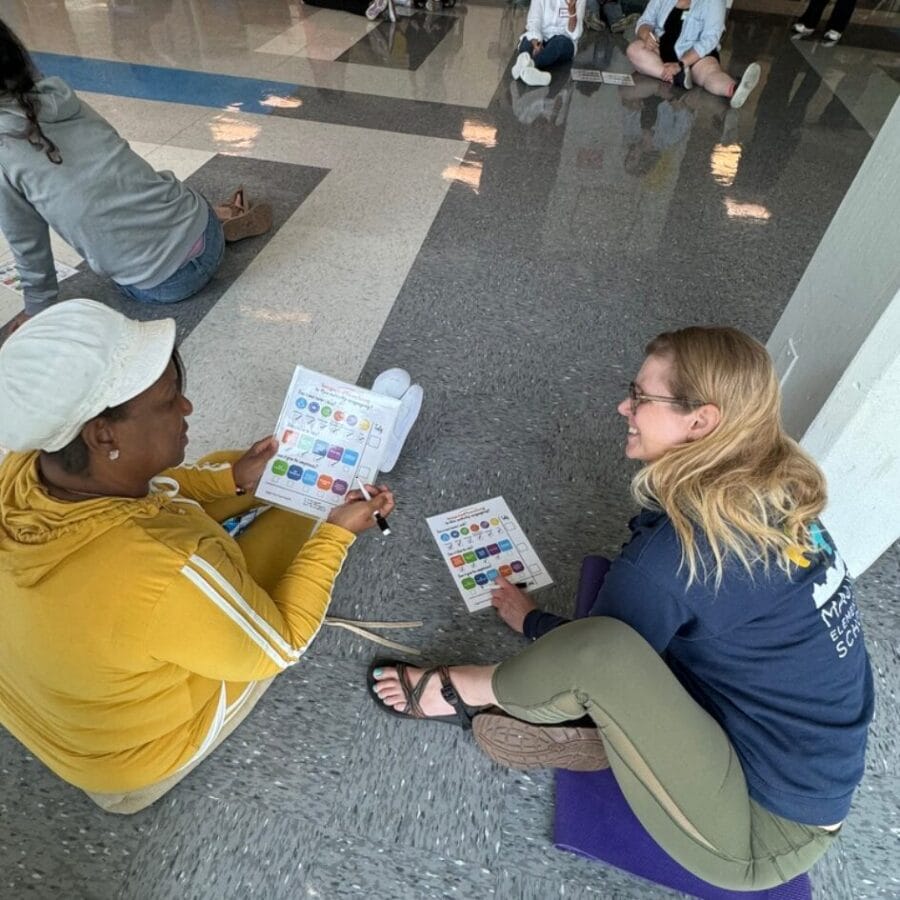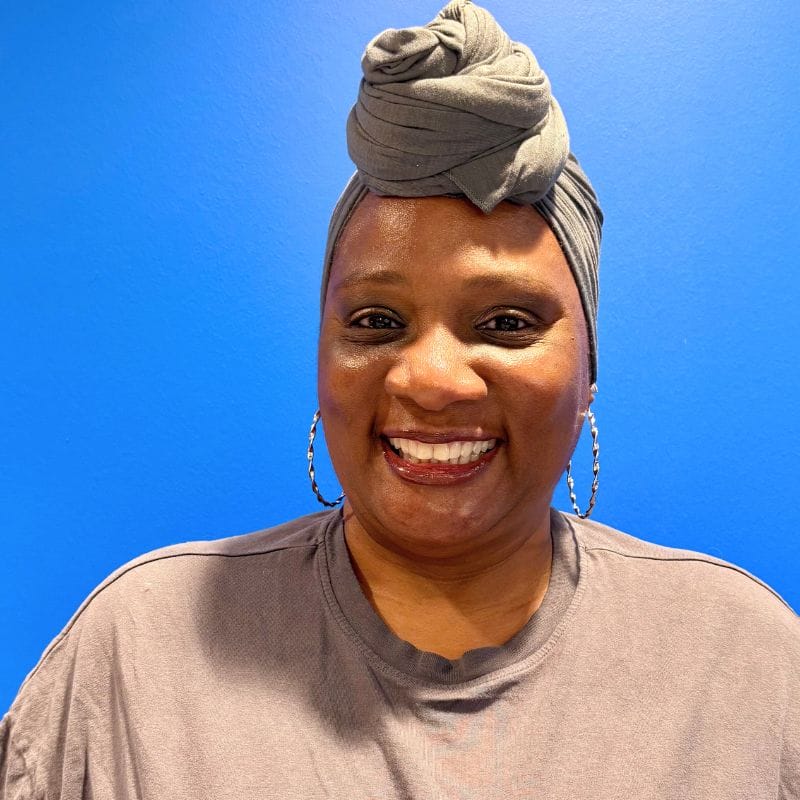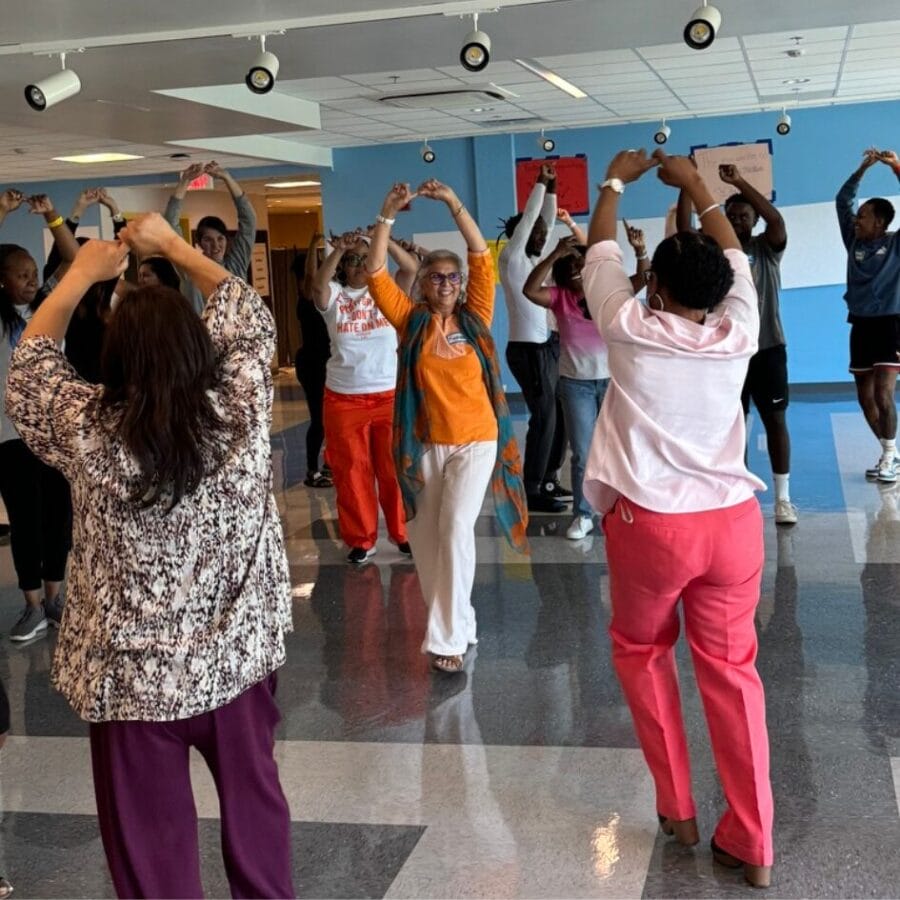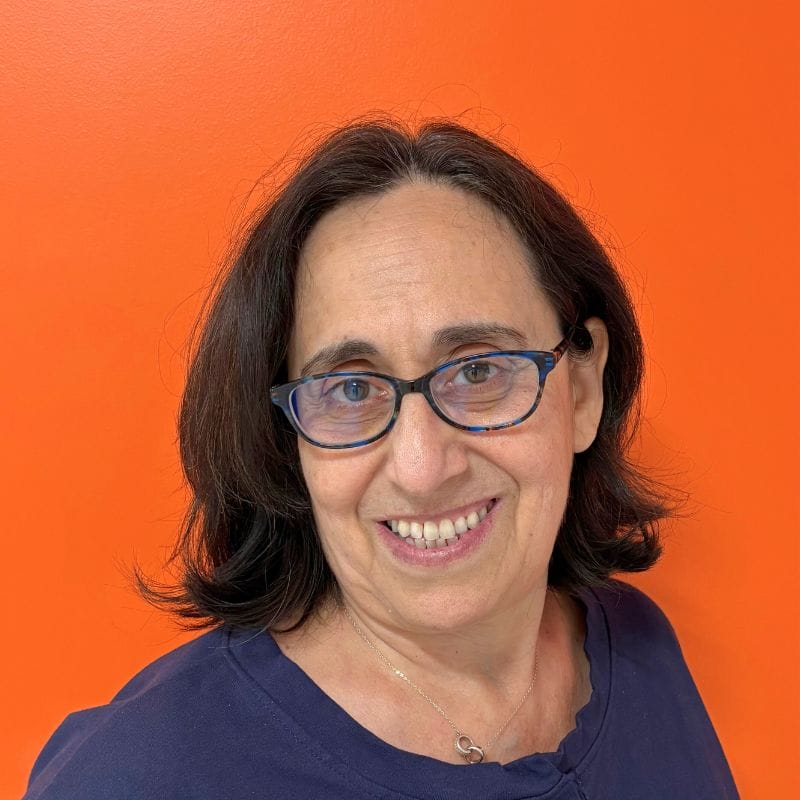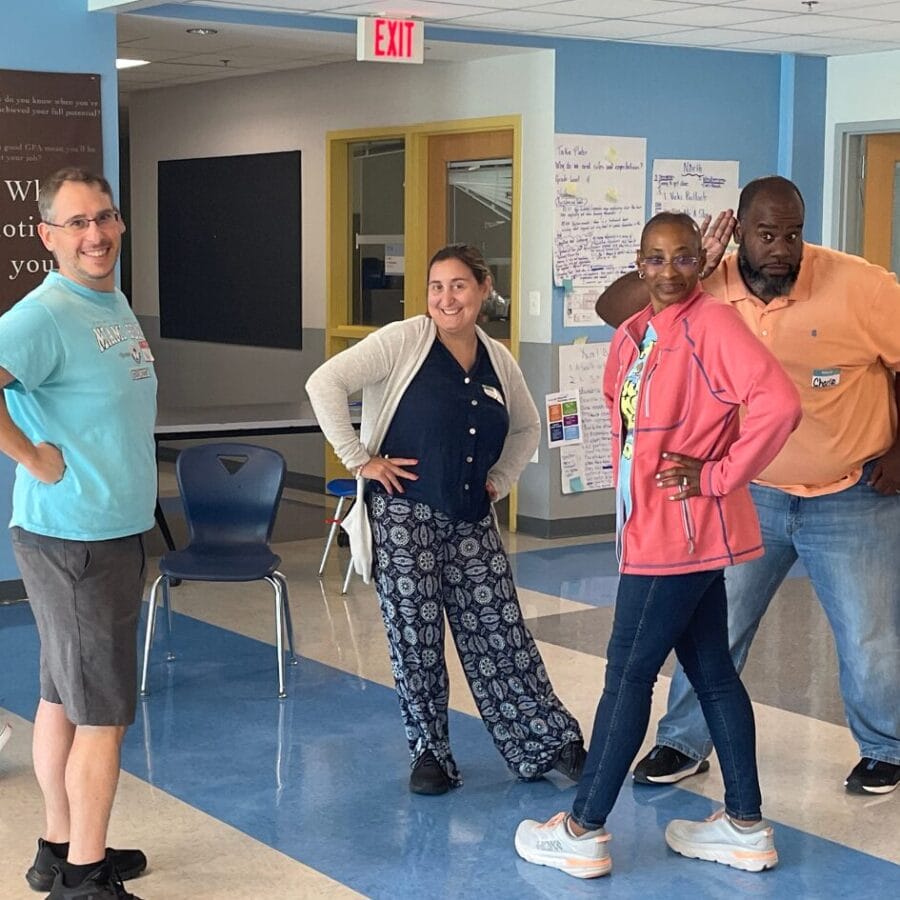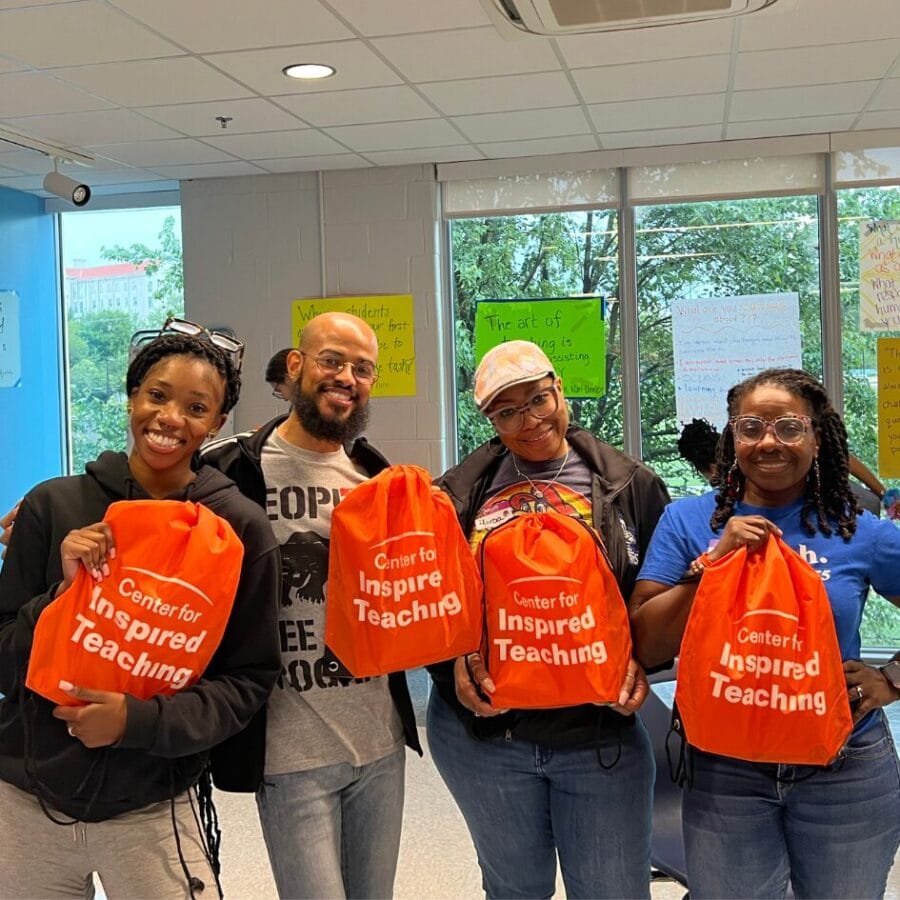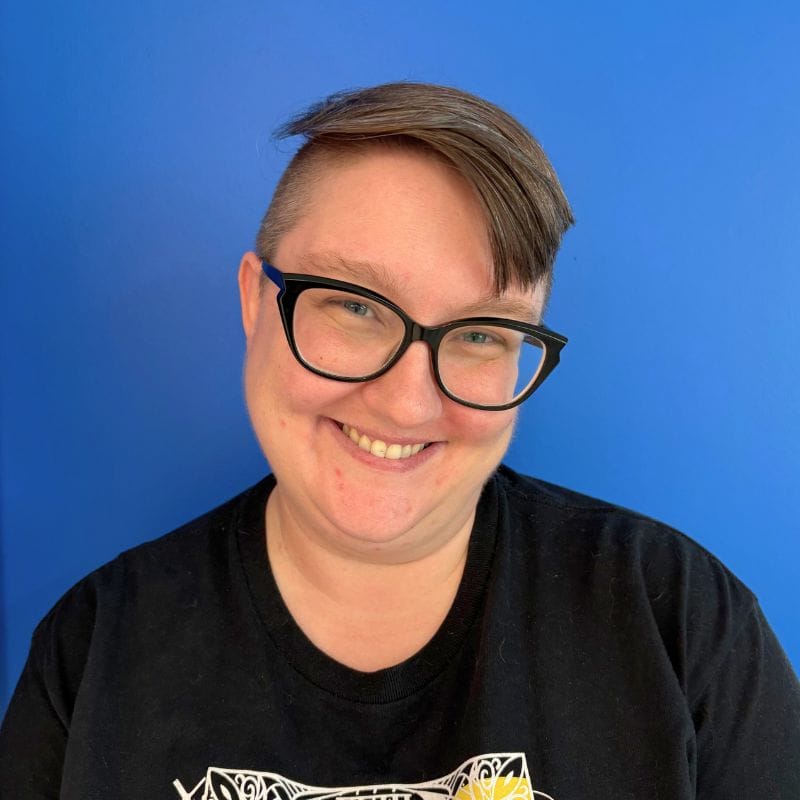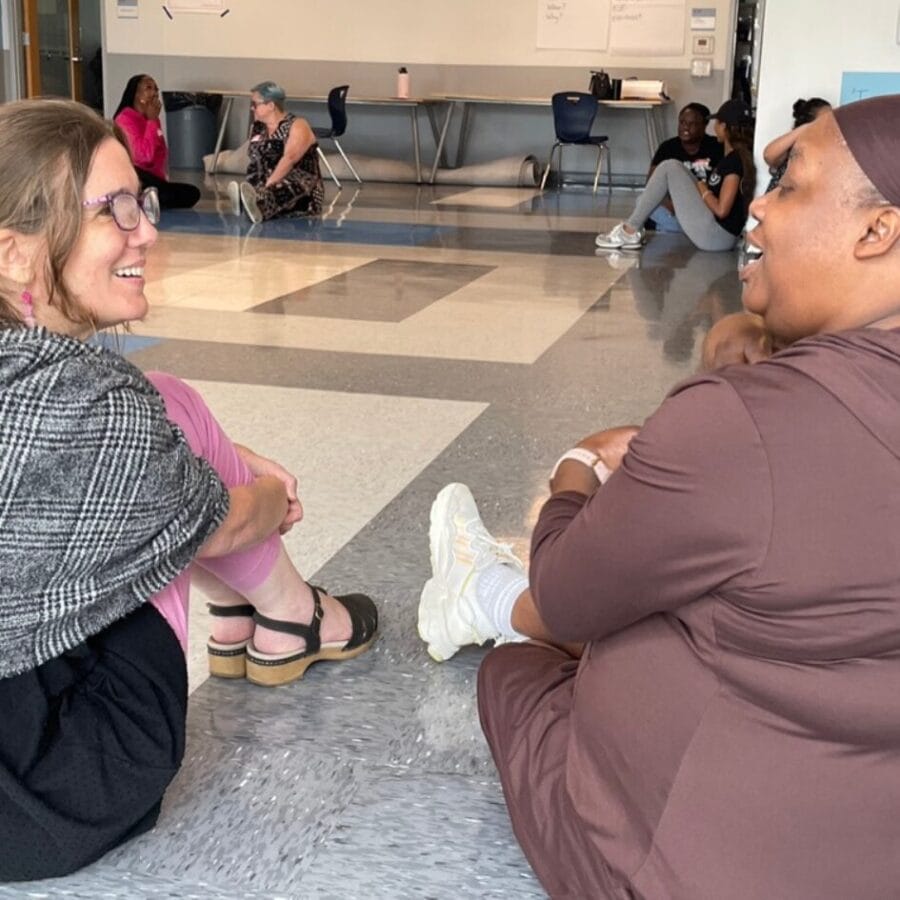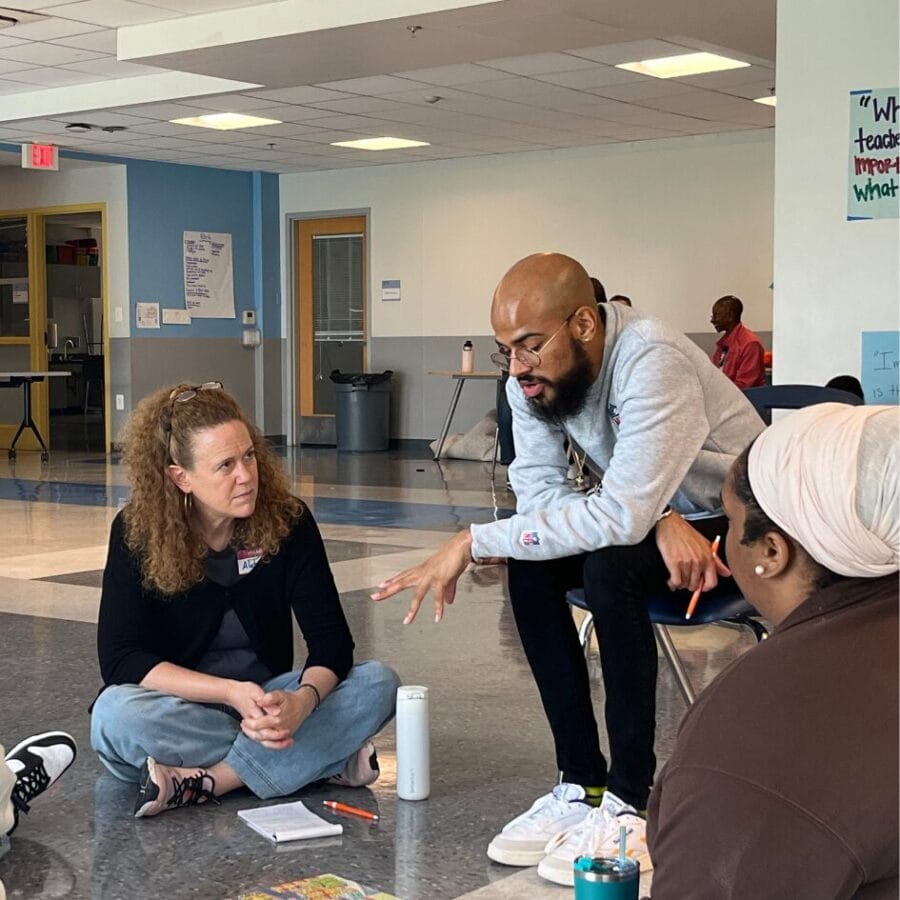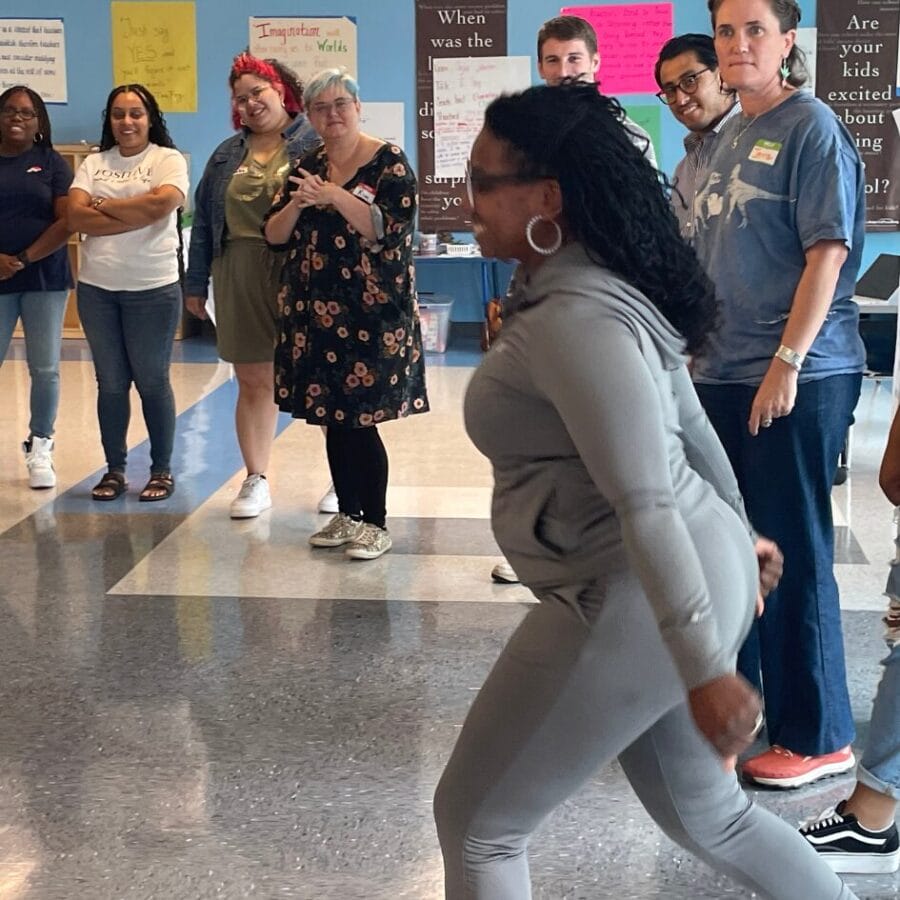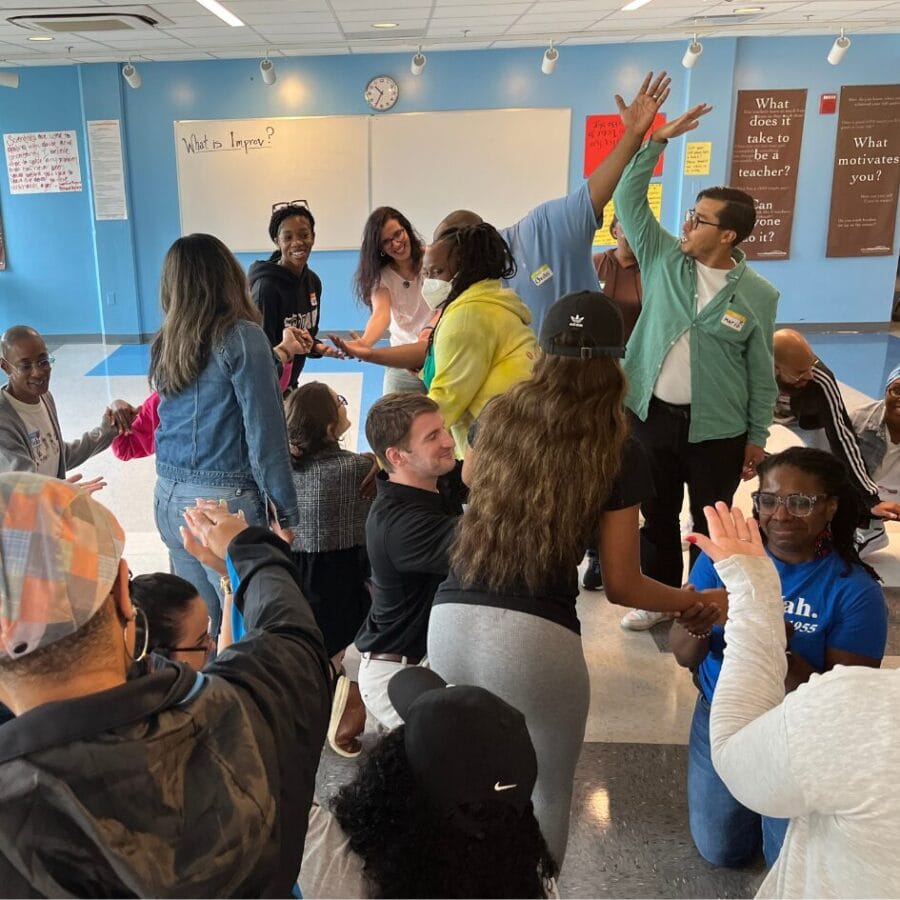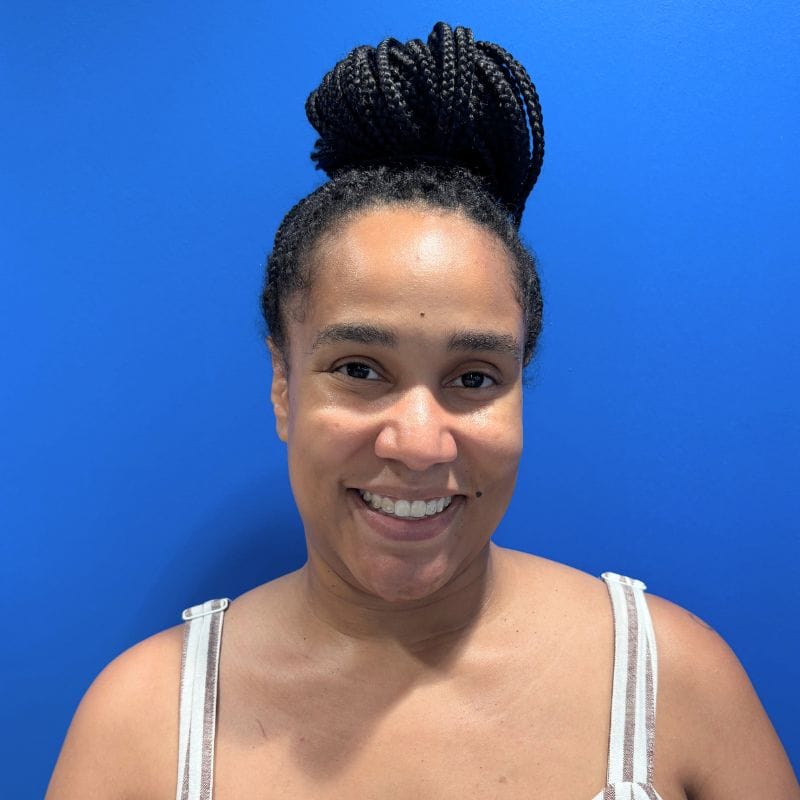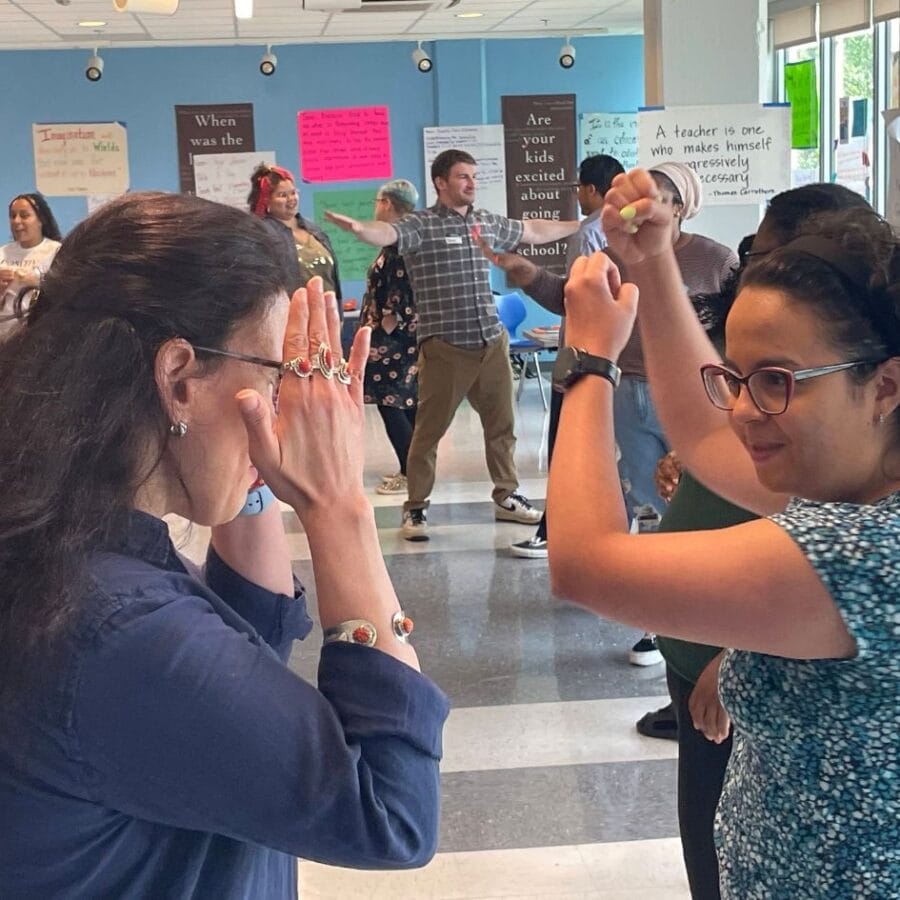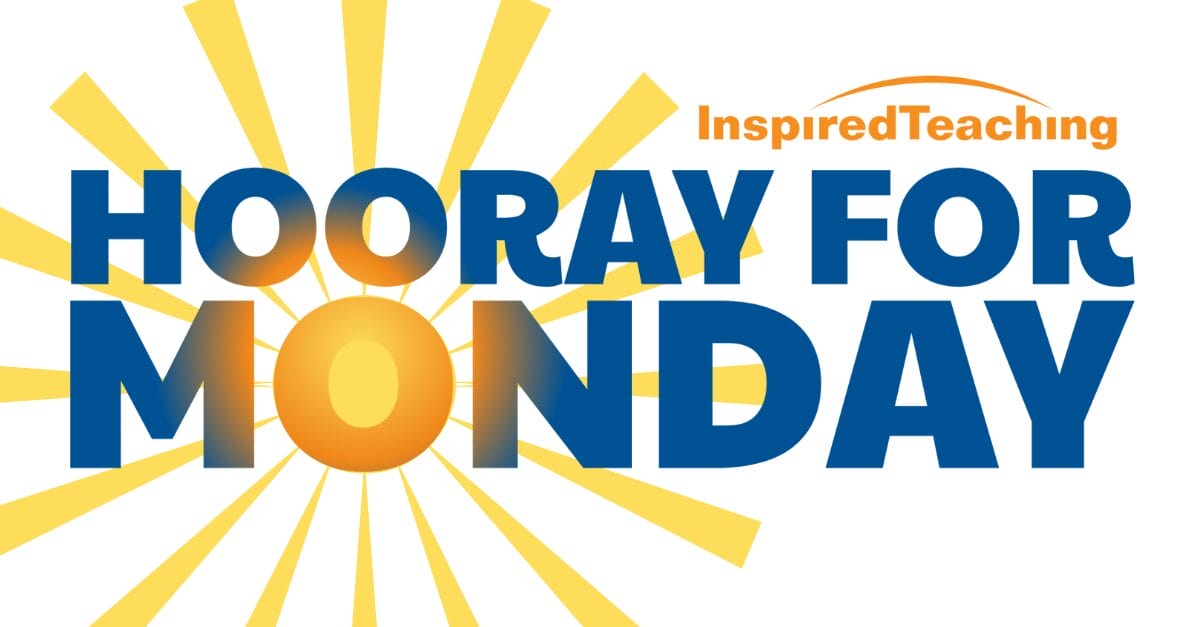Teaching With Improvisation Fellowship
Building Community and Transforming Education
The Teaching With Improvisation Fellowship is an invigorating, yearlong learning experience for teachers at schools in Washington, DC, grounded in the 5 Rules of Inspired Teaching Improv that lead to an engagement-rich classroom. The Fellowship is a “train-the-trainers” program, designed to amplify individual Fellows’ impact in their school communities.
The Fellowship kicks off with a summer Institute every June. Fellows learn to listen attentively; hone their observation skills; and engage their curiosity and empathy to deepen their understanding of their students’ needs and how they learn. Following the Institute, Fellows receive in-classroom support throughout the school year. They are empowered and expected to lead transformative professional development within their own school communities and be among the first educators in the District to learn how to implement and share the updated OSSE SEL Standards.
What do Teaching With Improvisation Fellows have to say about the program?
100% of participants rated the learning as useful or very useful for their work and as engaging or very engaging
100% of participants reported that the session was relevant to someone teaching their content area and grade level
Participants learned how to build more meaningful relationships with students—a key to Social Emotional Learning
“I used to think improv was for theater, but now, it’s for life!”
“Your workshops inspire me to connect deeply with my students, and as an administrator, to connect more deeply with our instructors.”
“Thank you for all these life-affirming ideas!”
“This was a reminder that there is still joy in teaching, no matter how challenging it has become.”
Application to the Teaching With Improvisation Fellowship is open to educators at all DMV schools– public, public charter, and independent — and are reviewed on a first-come, first-served basis.
This program, and all Inspired Teaching programming, is supported in part by the DC Commission on the Arts and Humanities, which receives support from the National Endowment for the Arts.
Standards Addressed
Teaching With Improvisation Fellows learn through professional development strategies that align with academic standards and the below DC Office of the State Superintendent of Education SEL standard categories and will be equipped with Inspired Teaching resources and activities that address these standards in their classrooms.
OSSE SEL Standards
Self-awareness is the ability to recognize, understand and express one’s emotions and how they impact one’s actions. Self-awareness includes the ability to identify one’s personal strengths, interests, values and challenges, develop positive self-identity, recognize oneself as a lifelong learner and know when one needs to seek help.
Self-management is the ability to manage and express one’s emotions, set and achieve personal and academic goals and persevere through challenges.
Social and cultural awareness is the ability to empathize with and respect others, including those with different and diverse perspectives, abilities, backgrounds and cultures. Social and cultural awareness includes the ability to understand and use positive social and communication skills.
Relationship Skills: The ability to establish and maintain healthy and supportive relationships and to effectively navigate settings with diverse individuals and groups. This includes the capacities to communicate clearly, listen actively, cooperate, work collaboratively to problem solve and negotiate conflict constructively, navigate settings with differing social and cultural demands and opportunities, provide leadership and seek or offer help when needed.
Decision-Making and Agency: The ability to make caring and constructive choices about personal behavior and social interactions across diverse situations. This includes the capacity to consider ethical standards and safety concerns, and to evaluate the benefits and consequences of various actions for personal, social and collective wellbeing.

